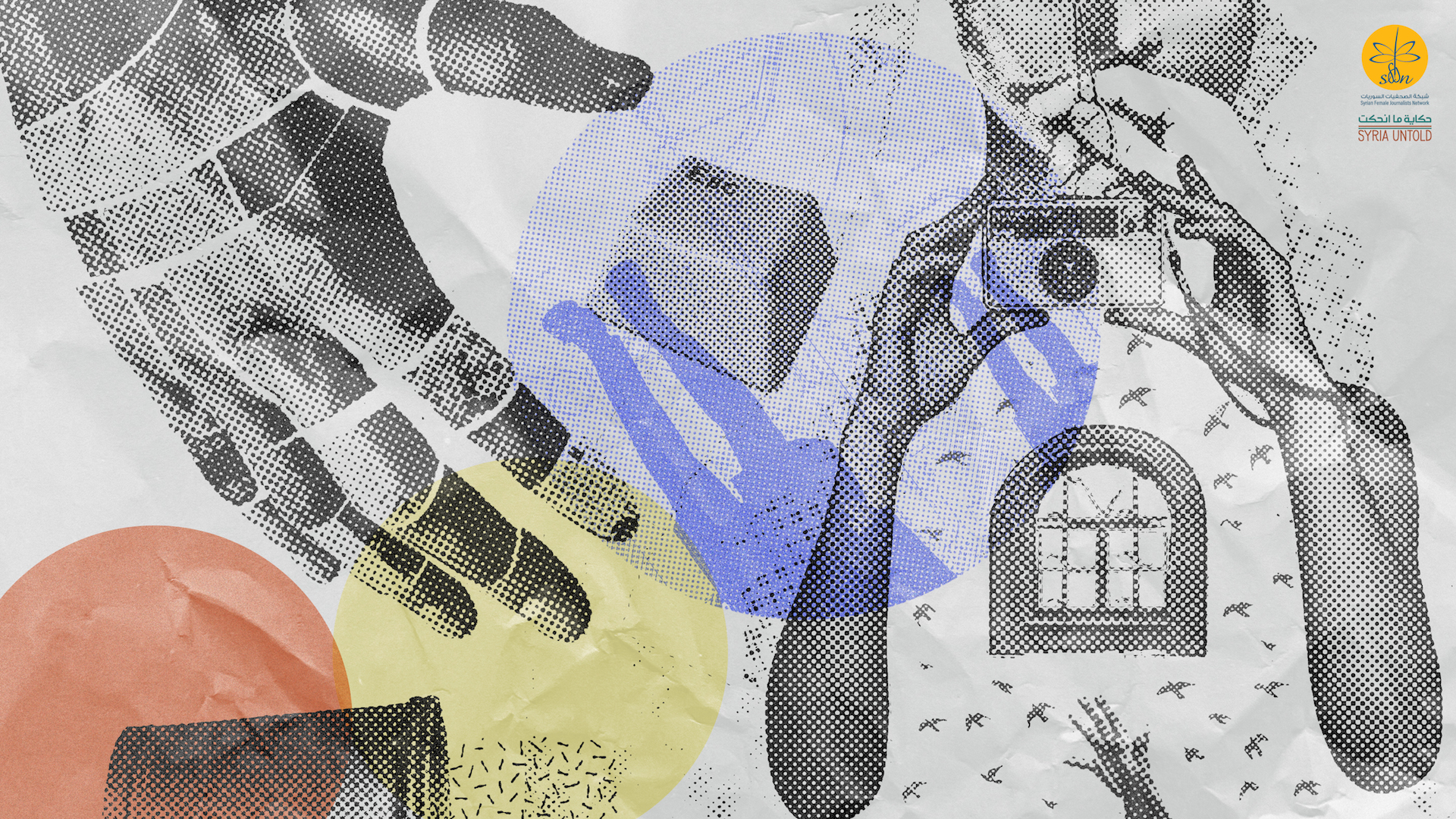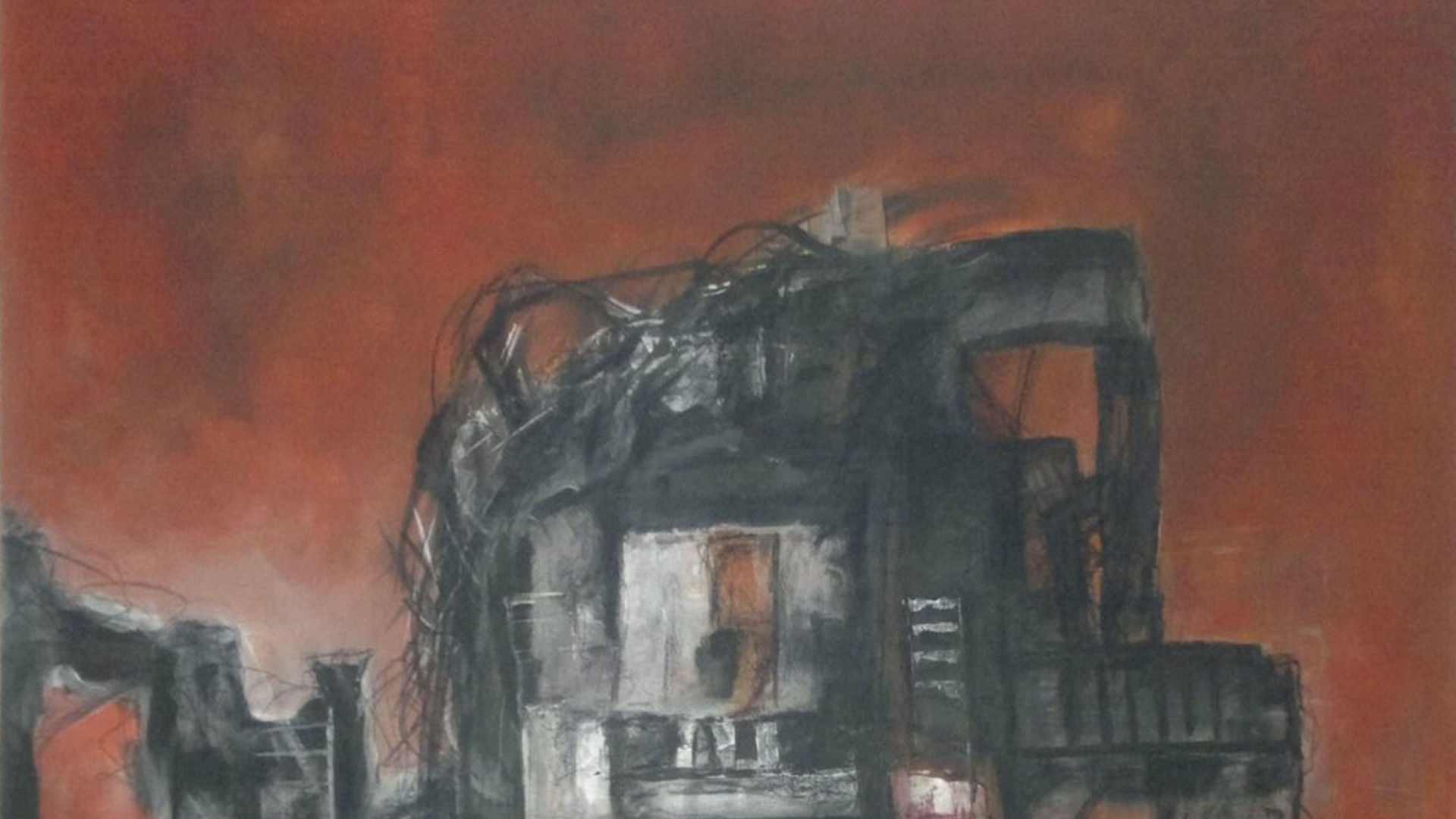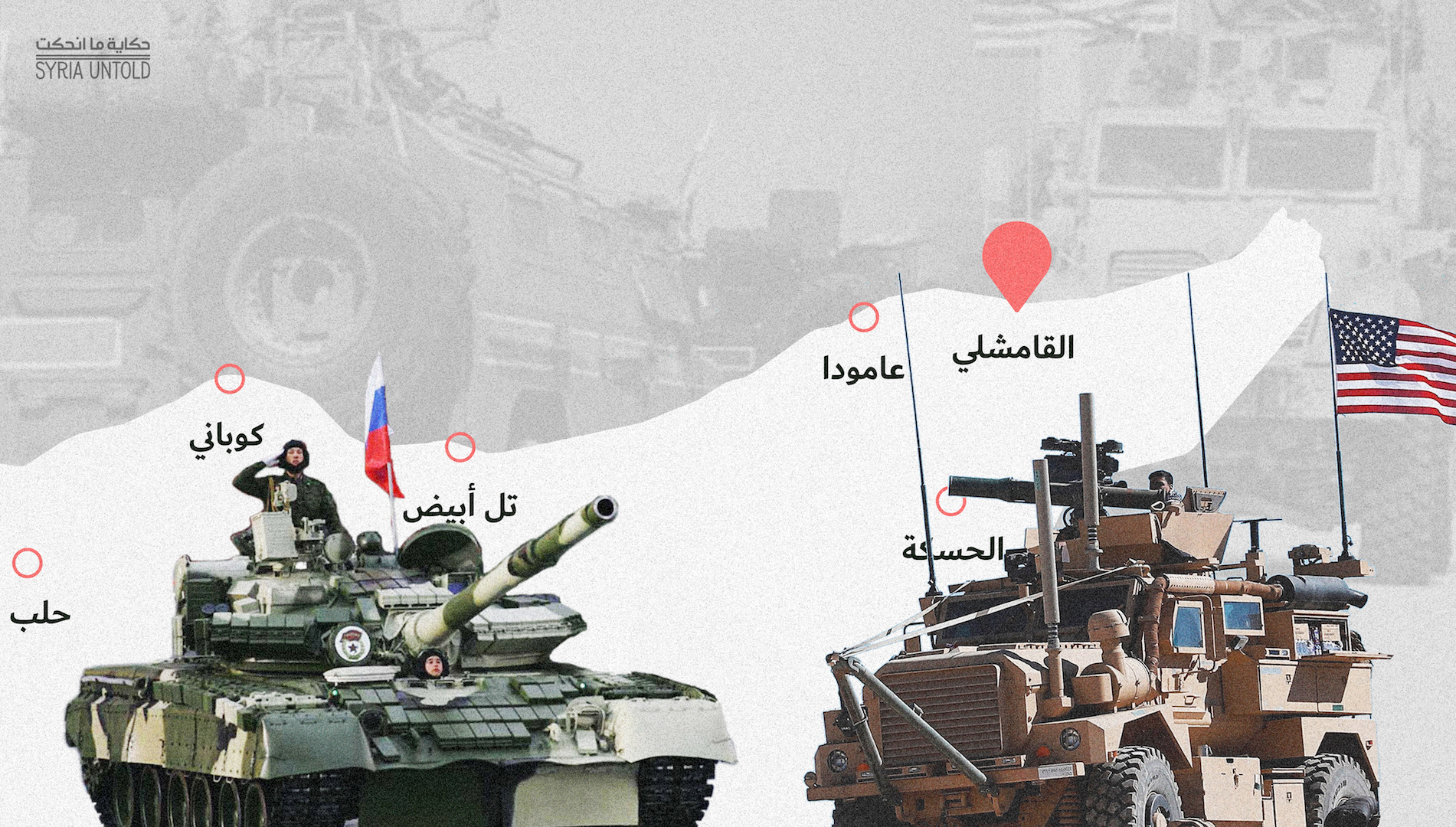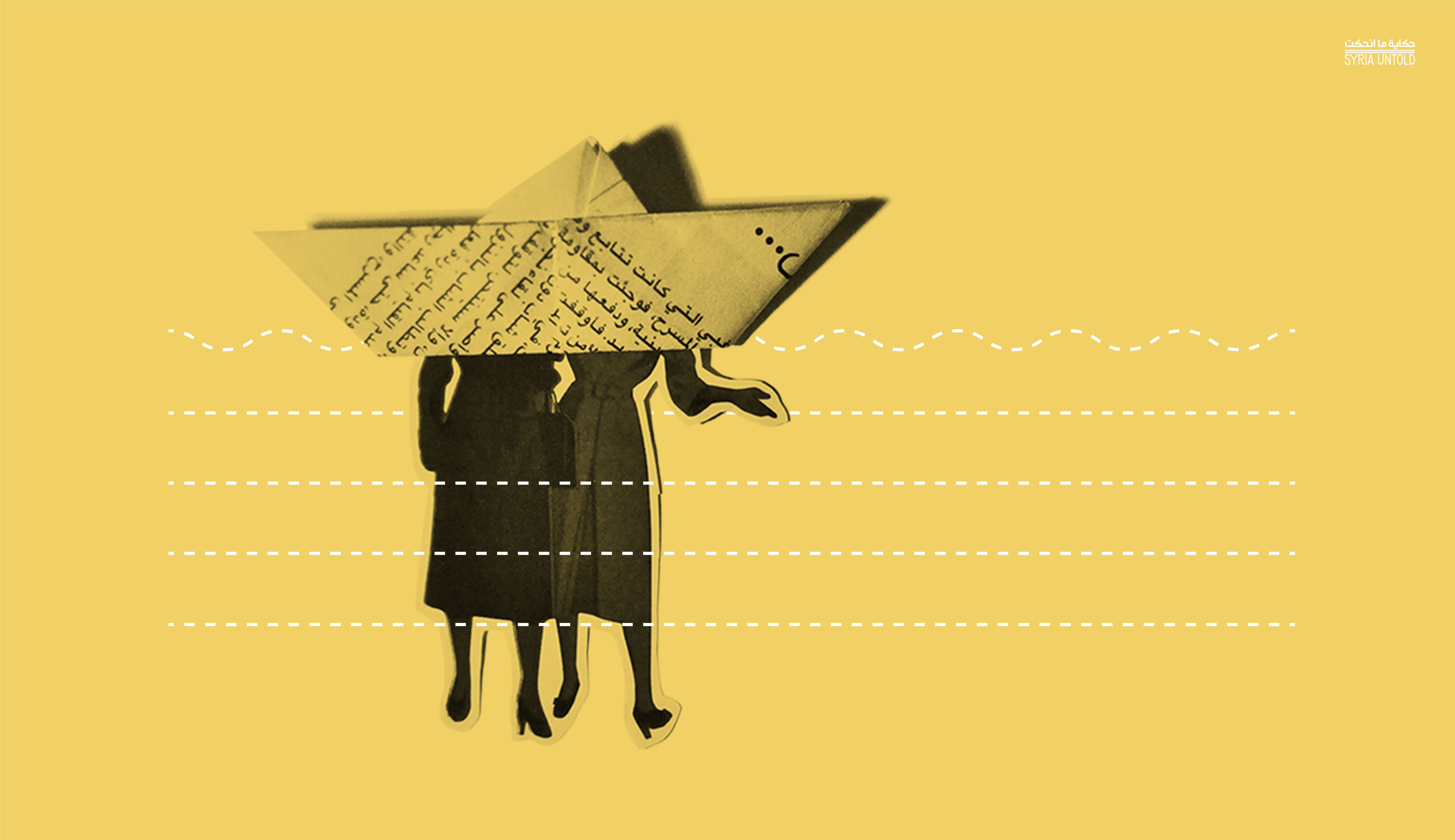This article was published through cooperation and partnership between SyriaUntold and the Syrian Female Journalists Network. A version of this article was published in Arabic here.
JINWAR, Northeastern Syria: Hanaa al-Khalaf’s days start early. After waking up one day in March, she bakes bread, then tends to her livestock and the vegetables she planted in her basement.
The drama queen of quarantine
23 June 2020
Journalism in Rojava (I): Media Institutions, Regulations and Organisations
29 March 2019
She alone is in charge of the household—40-year-old Hanna and her three young children live in Jinwar, a village run solely by women in a corner of far northeastern Syria under the control of majority-Kurdish forces. Men are not allowed.
Later that morning, during a lull in work, Hanaa watches as her three children play. For the past two and a half years, she has raised them alone, after her husband died of heart disease in 2018. At the time, the family still lived in their hometown of Amouda, along northeastern Syria’s border with Turkey. Her husband’s death, and the subsequent loss of his income, threw the family into a sudden uncertainty.
“After my husband passed away, my parents and in-laws could not support us,” she says. “They were struggling with their own tough living conditions.”
Living among the women of Jinwar has lightened some of that burden, Hanaa says, though it has been a long journey to stability.
After her husband’s death, Hanaa rented a house in Amouda for herself and her three children for 25,000 Syrian liras per month, about $50 at the time. Without a university degree or professional skills, Hanaa had no luck finding a job, and was soon unable to continue paying rent. She needed to find a way to support her family, quickly.
Most of northeastern Syria is under the control of the majority Kurdish Self-Administration. Though ruling authorities there, ostensibly at least, tout women’s participation in public life, women still oftentimes face trouble finding jobs to raise their families. That lack of opportunities only added to Hanaa’s debts. Buying food and other basic necessities was quickly becoming impossible.
Then, three months after her husband’s death, she heard about a newly established village not far down the road from Amouda. It was to be run solely by women.
What is Jinwar?
Jinwar was founded at the end of 2018 in the countryside outside al-Derbasiyah, a town in the far northeast of Syria. There are 30 homes, a bakery, a warehouse, a school and an administrative center. About 10 women currently live in the village, with their 17 children.
Zainab Salim is the village’s supervisor, and handles administrative tasks. She sees Jinwar as a refuge for women in need of a safe space amid Syria’s war.
“I was a mother of three, but after my husband died, I had to become both the mother and father."
“Ever since the war began raging in 2011, women have been under intense pressure, and have faced many problems and oppression—both in this area [of the northeast] and across Syria in general,” Salim tells SyriaUntold.
Some international laws call for protecting women in conflict zones, like the Security Council Resolution 1325 that was issued in 2000 and “reaffirms the important role of women in the prevention and resolution of conflicts.” The resolution has yet to be implemented in Syria, including the northeast.
In response to those pressures, and the additional pressures of war, Salim says, local women’s organizations founded Jinwar as “a place for abused women, or women who want to live far from oppression.”
Three months into raising her children alone, back in 2018, Hanaa was sold on the idea.
Her two oldest children, Ayham and Abdelrahman, ages 13 and 10, had up until then been unable to attend school, while Hanaa’s debts had only grown since her husband’s death. “I did not have any support,” she says. She decided to make the move.
“I sought refuge in Jinwar, as it was the best option for me,” she says of her decision to leave behind Amouda. Like Hanaa, all women living in the village are divorced or widowed, or have faced some sort of social oppression.
A happy life?
Still, Hanaa does miss her old life in Amouda—her parents, her neighbors, friends.
Jinwar’s isolation has drawn some criticism.
Among those critics is Naz Hami, a women’s rights activist from the northeastern Syrian city of Qamishli. “I do not agree with models that propose isolating women from society,” she tells SyriaUntold.
‘World War III’ in Qamishli
05 June 2020
The options for Syrian female activists in Lebanon: Fear, imprisonment or departure
22 May 2020
“Democracy is based on social justice and balance in gender roles. This cannot be achieved for women if they are kept segregated.” Hami also worries that separation from the rest of society, and a lack of exposure to healthy interactions between men and women could impact the social development of children growing up in Jinwar.
“Kids need both parents’ care and affection,” says Joana Barakat, a psychologist in northeastern Syria. “In the father’s absence, the psychological pressure affects the child too. Parents have duties and responsibilities towards each other and their children. The more complete and sane this relationship, the better the psychological state of the mother, father and child.”
However, such arrangements are not possible for many of Jinwar’s children in any case, as their fathers have passed away, or have separated from their mothers.
Hanaa at times feels the pressures of fulfilling her own role as a single parent, as well as filling whatever void has been left behind by her husband. Living in Jinwar has done little to change that, she admits.
“I was a mother of three, but after my husband died, I had to become both the mother and father,” she says. “It is impossible to make up for a father’s loss, and the increasing pressure has been weighing me down.”
She is nervous at times, and irritable. “I think of my children and their future, I feel lost and scared.”
But life in the women-only village has proved stable, for now. It is some semblance of a refuge.
“We work, grow crops and receive salaries from the village council. We go on weekly outings, and visit the market to buy things we need.” Hanaa feels “far from the humiliation” of her former debts and joblessness as a newly single mother.
“I feel now that I’m in a normal society where I can live securely.”









